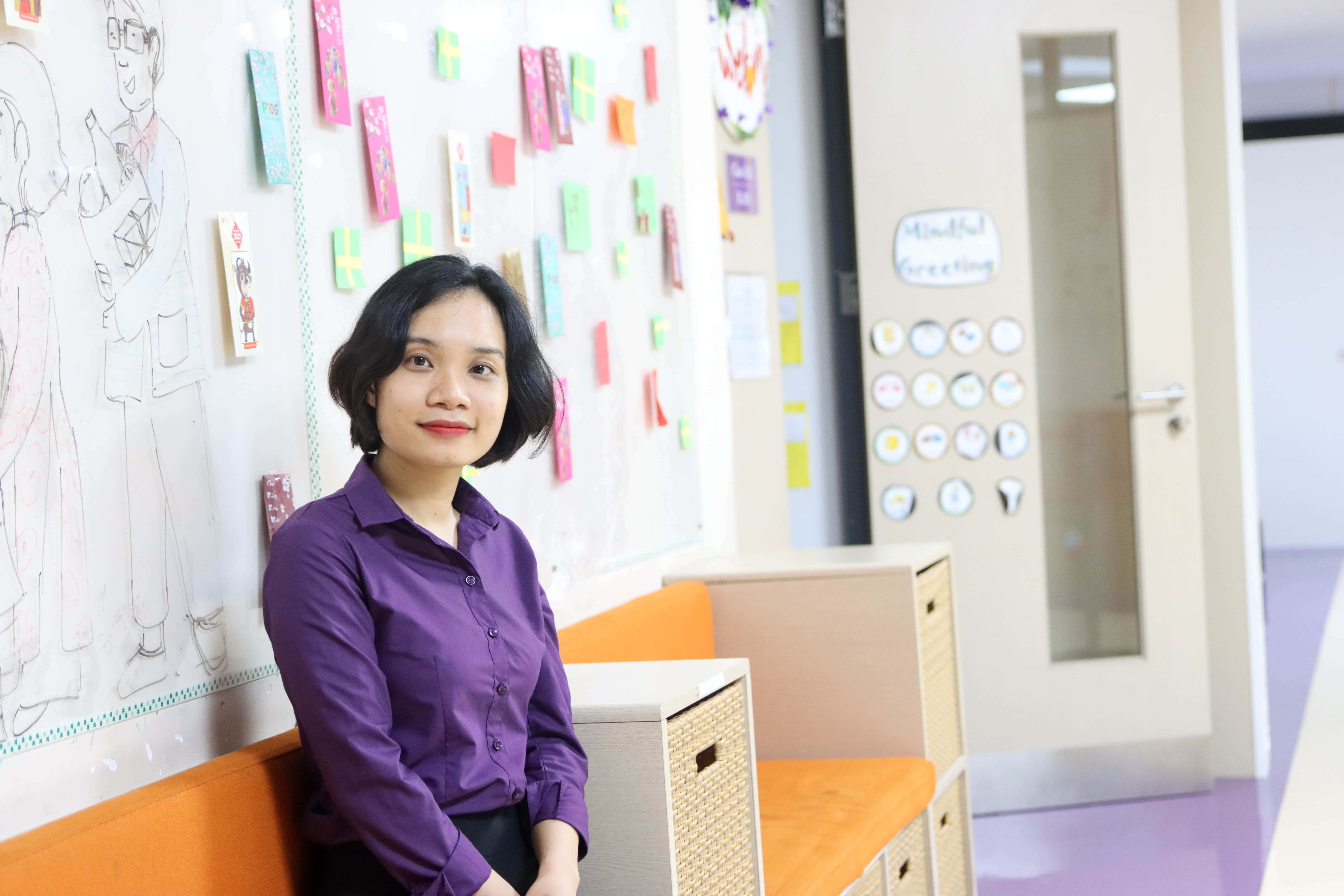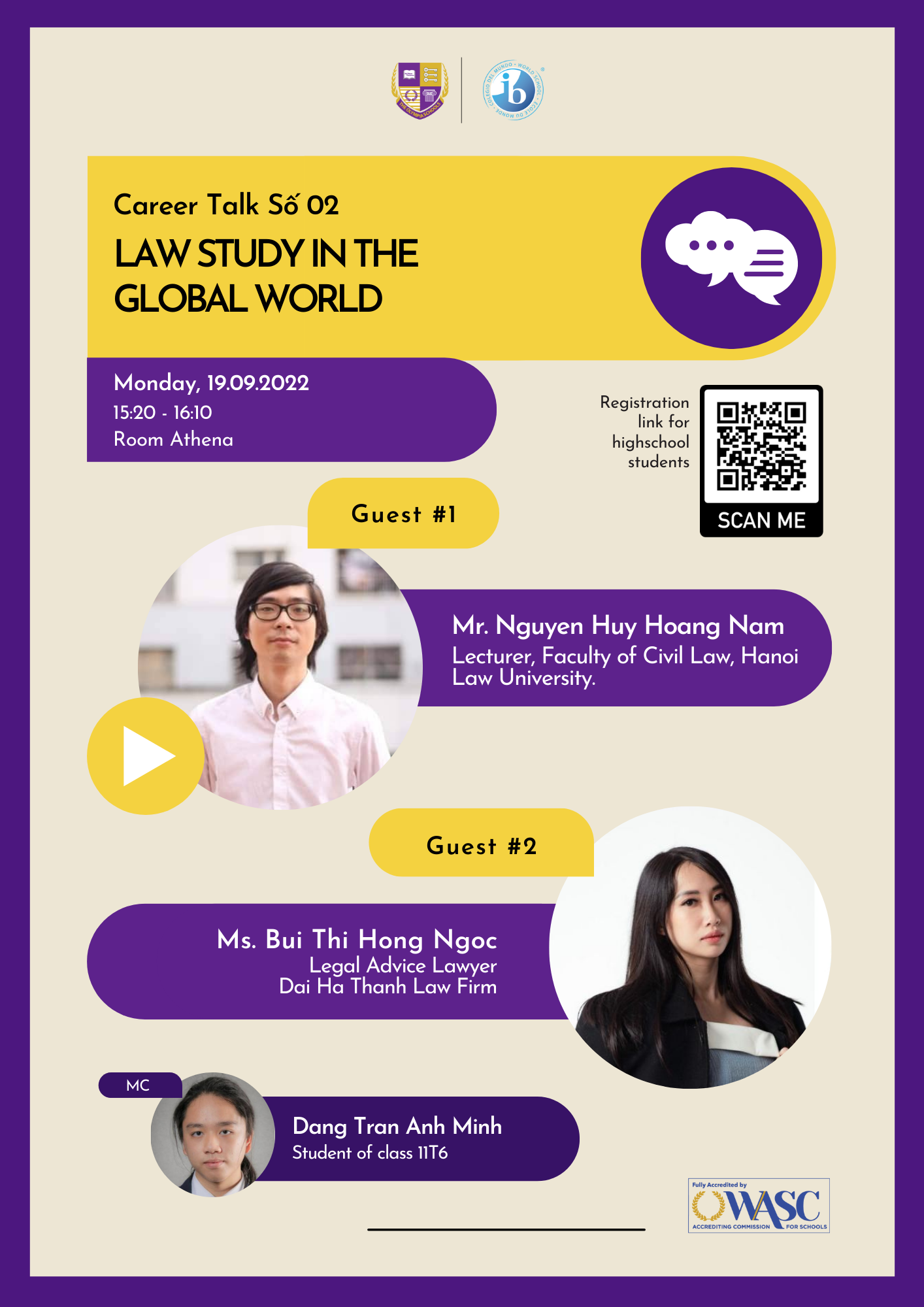
English is not merely a subject, but a Language, a “tool” to broaden children’s perspectives.
25 September, 2021
Approaching and teaching English can be achieved in a variety of ways. Let’s meet with Ms. Phuong Thao, an Olympia primary English teacher, to get a better understanding of her perspectives on the subject that receives the most attention from parents in any enrollment season.
Hello Ms. Phuong Thao and thank you for taking the time for this interview. How long has Phuong Thao worked at Olympia?
It’s been my third year working at Olympia. When I first started my job, I was a deputy advisor, now I work with 2nd graders in both advising and specialized work.
Between specialized work and advisor, which is more difficult?
It is tough to make a comparison between the two. Specialized jobs, like those of any other teacher, have helped me shape my career path and better understand my job, together with four years of English majoring and working in the educational and English language – related sectors. Each role has its own challenges and obstacles which makes it impossible to compare.

For teachers, the most challenging part is keeping students engaged. Their “sense” will be closed and not receptive if they are not interested in the subject.
As someone who is dedicated to primary education in general and English teaching in particular, what do you think about the importance of English subject to children?
For children, any language, not just English, offers up a whole new world. Primary school years is the golden time for children to assimilate knowledge the most quickly and naturally. Learning English is more than just a subject or a way of communicating. Children learning English alongside their mother tongue will be able to compare the two languages, identify the similarities and differences, and help students think more effectively and critically. It also allows students to embrace new cultures and approach different perspectives. Learning a language involves learning a way of thinking, a community's way of thinking, through which youngsters will be able to see the world in a more multifaceted way.
This a crucial period for children to broaden their horizon, be exposed to new materials and access language in a natural, unconstrained manner. Adults studying English generally put a strong emphasis on grammar and vocabulary, whereas children learn English in a more spontaneous and instinctive manner.
I do not recommend that children learn English at a young age because it also depends on their personal preference and language capability. However, the earlier students are exposed to English, the more likely they are to enter the world of natural languages.
As such, what is Olympia Primary School going to assist students in broadening their perspectives through English learning?
The world is made up of stories and tales, and it is through narrative that we acquire and understand knowledge in the fastest way. So are children. There are many unique aspects in terms of language teaching at Olympia Elementary school, but for me, the integration of stories is one of them. Personally, I prefer to teach grammar through stories. Although it may sound trivial or funny, it helps students remember more easily and prevent the class from becoming dull. When assigned projects, students will promote creativity from those stories
Olympia students are intrigued by extensive questions and are exposed to broader reading topics. As a result, students gain not just English abilities but also holistic knowledge in many fields. I recall one of our reading sessions about a Muslim girl and the students show great enthusiasm exploring and discussing the topic.
The essence of language is that it is alive. Students will develop skills that will help them improvise language organically, employ non-stereotypical words, and use language more flexibly in conversation at Olympia. To make English less exotic, issues from everyday life are included in the curriculum.

Every profession comes with difficulties and challenges; Ms Phuong Thao, do you think there is anything that challenges you in your teaching career?
The most challenging task for teachers is to arouse student interest. Students' senses will be "closed," not receptive, if they are not interested in the subject. It will be difficult for the children to absorb information if they are not given a topic that is appropriate and intriguing.
Concepts are discussed in Vietnamese in other subjects, but in English class, teachers will seek to maximize the usage of English, making communication more difficult than it is in Vietnamese. Teachers must make communication simple and entertaining while still maximizing English reception. As a result, I've seen that teaching English to youngsters can be more challenging than teaching English to adults.
The most important thing for teachers is creativity. I am an English teacher for students of the new generation, but I am a "product" of the old education, therefore it is easy to fall back to the rut of what I was taught in the past. For English teachers, creativity and innovation are critical.

Is the increasing requirement and demand for English subject a pressure for teachers?
It is not only stressful for teachers but also for students. Parents will be more adamant and concerned with their children's accomplishments, which may lead to them pressuring their children to study and take more examinations. Pressure on children will lead to pressure on teachers, with inquiries such as: “why do you still conjugate verbs incorrectly?" Why haven’t you got Flyer certificate yet?
Because each child progresses at his or her own pace, learning is likewise unique. Not everyone realizes that at this age, children must make mistakes, be able to make mistakes, and be able to correct them. Learning according to the spiral structure will be improved after each level of education, which is not understood by all parents that their children will gain more advanced knowledge at the following level.
Thank you Ms. Phuong Thao for your sharing!



















